- Home
- Rick Mofina
Last Seen Page 12
Last Seen Read online
Page 12
“Of course we would,” Faith said.
“Will you agree, then?” Malko asked. “We can do it later this afternoon.”
Faith and Cal exchanged looks for a moment, then Cal responded.
“We’ll talk to a lawyer first, then get back to you.”
“Certainly. As you wish. We’ll stand by,” Malko said, feeling the promise a fisherman feels at the first little tug of his line.
23
The men standing outside the Chambers of Dread sipping morning coffee from take-out cups were with Ultra-Fun, the county and the Illinois Department of Labor.
Their conversation halted when a woman in her late forties, wearing coveralls with a duffel bag hoisted over her shoulder, ducked under the crime scene tape and joined them.
“And you are?” Rex Dunne, Ultra-Fun’s lead engineer, appraised her.
“Quinn Hardy, FBI structural engineer,” she said, allowing an awkward moment to pass before the men recovered with introductions and handshakes.
As a woman in a male-dominated field, Hardy was used to this sort of reaction. But as an MIT grad, with some twenty years’ worth of investigating aviation disasters and terrorist attacks around the world, she had more experience than her colleagues combined.
“Thanks for sending me the floor plans and other documents last night to study,” she said to Dunne.
“Sorry, with the name Quinn I thought you were a guy,” Dunne said.
“Happens all the time. My dad, God bless him, wanted a son.” Hardy smiled while surveying the Chambers, empty and silent before them, as were the fairgrounds, which hadn’t opened yet. “Let’s get started with a walk-through. First with the lighting the same as it was when Gage Hudson entered.”
Hardy caught the valid permit decal on the lower exterior wall near the entrance. She knew that in order to get the permit, state law required amusement rides and attractions operating in Illinois be inspected before operation and once a year after that.
Bud Porter, the white-haired man walking near her, had been inspecting Ultra-Fun’s rides for the state for the last seven years and carried a binder thick with documents and plans.
In keeping with permit requirements, Ultra-Fun had also provided proof to the state that they’d conducted criminal history and sex offender registry checks for all employees. That information had been passed to the other investigators but Hardy knew that often it was not accurate.
That was for Malko and his people to sort out.
The Chambers of Dread was sixteen years old and had been reconfigured and renamed every few years. The attraction was erected in a maze-style. Its construction consisted of several interconnected tractor trailers, some of them double-wide, making it one of the largest traveling scare houses in the country.
It was conceived around a system that moved guests along a twisting walkway from “scare set” to “scare set,” arranged such that exits weren’t clear due to the theatrical distractions and low illumination.
After her first slow walk through the Chambers in the darkness, Hardy requested a second walk with all lighting activated. Passing through she took note of all exits, fire extinguishers, the security exit alarms and the close-circuit camera system.
On her third, fourth, fifth and subsequent tours through the Chambers, Hardy took pains to examine the walls, touching, pressing, knocking and tapping them, checking for anomalies, inconsistencies, things hidden or concealed.
In the set of the insane butcher, Hardy detected an unusual creak-squeak and give-and-take underfoot. Dropping to her hands and knees she noticed a small latch, recessed, almost hidden in the flooring. Pulling a screwdriver from her pocket, she hooked the latch and heaved open a small wooden door, just under two feet by two feet.
Concealed beneath it was a compartment the same size and about six inches deep. It resembled a cupboard or drawer space under the floor. A square metal bracket was screwed to the center of the space.
“What’s this, Bud?” Hardy asked. “It’s too small to hide much and it doesn’t lead anywhere.”
“I don’t know.” His binder crackled as he flipped through older records, floor plans and manuals. “Here.” He tapped a laminated page. “I think that goes back a few years to when they called the attraction Terror Town. Looks like this was a spring-loaded pop-up scare, no longer in use.”
“Hmm.” Hardy sat on the floor examining how well it was constructed and concealed.
“What’re you thinking?” Brian Lodge, with the county, asked.
Hardy tapped her screwdriver to the hidden compartment.
“Over the years this attraction has evolved with the complexity of an illusionist’s trunk or cabinet. And given that we intend to go over every inch of its walls, floors, ceiling, underbelly and roof, I’m thinking this is going to take a couple of days.”
“A couple of days?” Dunne repeated.
“Yup. And I’ve got a hunch we’re going to find a few surprises.”
24
Michelle and Jack Thompson’s home was a two-story stone colonial, with a yard sheltered by two-hundred-year-old oak trees, in keeping with what people might expect real estate professionals to own.
Michelle, Samantha and Pam went to the kitchen while their husbands went to the living room, turned on the TV and checked their phones for any news.
The air was taut with apprehension in the wake of the FBI taking Cal and Faith away.
“Any word?” Michelle asked, setting down a tray of fresh coffee while Samantha and Pam brought sugar, milk and cookies.
“Nothing,” Dean Huppkey said. “Why do you suppose the FBI showed up like that?”
“Maybe they got a new lead in the case?” Rory Clark said.
“If they did, it can’t be good,” Jack said. “Could be they found something.”
“Besides the shoe, what do you mean?” Sam asked.
“What I mean,” Jack said, “is that if they already found Gage’s shoe in that Dumpster, think what else they could find. I hope I’m wrong, but it just doesn’t look good.”
“We can’t give up hope,” Michelle said. “I just can’t imagine how much they’re suffering right now. If anything like that ever happened to Marshall I’d be shattered. I’d go to pieces.”
Pam Huppkey twisted her bracelet while listening to her friends.
“Right from the start—” Rory pointed his finger at the air “—I said it has to be someone inside who took Gage, a customer, a worker. He couldn’t just disappear like that. What else could it be?”
“Maybe he ran away?” Dean said. “Colton told us that Gage told him he thought his parents were arguing more than usual.”
“Probably worried discussions over Cal’s situation at the paper,” Jack said. “You know, with the rumored layoffs and all it’s understandable. It’s not like their marriage is in trouble or anything like that.”
As the group debated scenarios and guessed at the FBI’s presence, Pam withdrew into her thoughts, tormented by what she’d seen—or thought she’d seen—at the press conference at the fairgrounds.
It was that man, standing at the back watching Cal and Faith talk to the reporters. She’d recognized him under that ball cap. She’d seen him before. Or had she? She was unsure if it was really him.
Pam had taken art classes, even produced a number of portraits. She knew she had a good eye for faces.
In her heart she knew it was him. Yes, she was sure. And when she glimpsed Faith, she saw by her demeanor, the flash of recognition, she knew the man, too.
Knew him well.
What should Pam do?
She began twisting the tiny cross on the chain around her neck, her thoughts pulling her back several months to when her friend Marcia, who lived nearly ten miles away in Oak Brook, had called her to go shopping and have lunch at the big new mall there.
&nb
sp; They were in the food court when Pam spotted Faith at a table nearby. What a lovely coincidence. Pam had thought maybe Faith could join her and Marcia.
She was about to go to her table and surprise her when Pam’s phone rang and she sat right back down. Dean was calling, something about his car and running late. But as Pam had talked with Dean she’d noticed that Faith was not alone. She was sitting with a man, a good-looking man wearing a sport coat.
Maybe he’s a client of hers, Pam thought. But wasn’t it odd that they would be meeting way out in Oak Brook, so far from her office downtown? Pam noticed that they seemed to be having an intense conversation. She abandoned her plan to approach Faith, grateful the latticework of the small partition surrounding her section had made it nearly impossible for Faith to see her.
Pam had no idea who the man was, or what she’d witnessed.
Whatever was going on was none of her business. Besides, she’d always felt a little intimidated by Faith. Her friend was so smart and pretty and she had that power public relations job in a downtown skyscraper. Pam was happy to be her friend but Faith subjected her to subtle moments of almost cruel condescension.
Like that time Pam was invited to help Faith, Michelle and Samantha host the school fundraiser at the River Ridge Golf and Country Club. Faith’s eyes trailed over Pam’s top and skirt with a glint of disapproval before she smiled and said, “Oh, don’t you look nice.”
Then at the book club when Faith had suggested they read something by Joyce, Pam had said, “Oh, I’ve never read her, is she a new author?” Faith touched her shoulder and smiled a bit coldly. “James Joyce, sweetie, the Irish writer, and he has been dead for some time.”
Yes, Faith always made her feel a little self-conscious, for being a stay-at-home mom who never finished college. That’s why Pam thought that maybe she’d misread the incident at the mall and had told no one about it.
That’s what she thought at the time.
But now, Pam was convinced she’d seen the same man at the press conference on the fairgrounds, shortly after Gage had vanished.
Was his presence related to the boy’s disappearance?
What should she do?
Paralyzed with fear and confusion Pam couldn’t decide.
The detectives had not yet talked to her, or Dean and the others, but Jack said they should all expect to be questioned at any moment.
Faith was Pam’s friend and she wasn’t sure what she’d seen or what was going on. But Gage was missing, and if they found his shoe, did that mean... Oh, what should she do? It was none of her business. Or was it?
“Pam? What do you think?” Sam asked.
“I’m sorry?”
“Are you okay?” Michelle asked.
“Yes, why?”
“Pam, you’re crying. This is hard on everyone. All we can do is keep hoping and praying, right?”
Nodding and smiling weakly, Pam twisted the cross around her neck.
25
Pounding on the side of their van woke Alma McCain and Sid Griner.
“What the—” Sid wrapped a sheet around his naked body, went to the door to find Chuck dragging hard on a cigarette.
The fair and midway hadn’t opened yet and they’d slept late.
“Get your asses in gear.” Chuck pointed his cigarette hand to the distance. “FBI’s here and they want everyone out so they can search our places.”
The yip of dogs pulled Sid’s attention to the end of the RVs and campers where he saw agents in FBI raid jackets, along with River Ridge and Cook County people, huddled with Ultra-Fun and fairgrounds bosses.
“This is way more serious than before,” Chuck said. “I’m just giving you a heads-up, partner.”
Sid shook the bed as he rushed to get dressed. “Get up, babe. FBI’s getting ready to search everything. You gotta help me take care of things right now!”
Alma groaned a sleepy protest.
Sid looked out the window in time to see Vaughn King, Herb Dulka, the fairgrounds chief, and some well-dressed people pass by. Word spread fast that all Ultra-Fun and fairgrounds staff were to meet immediately in front of the Polar Rocket.
“Get up!” Sid kicked the bed. “This could be trouble.”
Then someone shouted at their van, thumping it as they passed by. “Get out now, leave everything untouched!”
Alma said nothing, quickly pulling on a hoodie, panties, pants, socks and shoes, then working with Sid to take care of what they needed to.
Seconds ticked by, then more thudding shook their van as a dog barked and its leash jingled. It was close, very close.
“Alma! Sid! Meeting in front of the Rocket, now. Let’s go!”
“We’re getting dressed!” Sid shouted as he and Alma worked.
“Leave the van and touch nothing. Let’s go!” the voice shouted.
A moment later, Sid and Alma emerged from the van, taking stock of the activity. Sid was wearing a baggy T-shirt under an oversize flannel plaid lumberjack shirt. Ensuring that no one saw them, they took a detour around several rides, stopping unseen for a moment in a narrow alley of trucks, portable toilets and generators before going to the front of the Polar Rocket, arriving just as the meeting began.
Vaughn King and Herb Dulka had introduced two men in expensive-looking suit jackets from some law firm who spouted off some legal mumbo-jumbo before King took over.
“So, bottom line, people,” King said, “the FBI is executing search warrants as part of the investigation for the missing boy. They’ll search everything.”
Soft mutterings and grumbling rippled through the group.
“This is fairgrounds property,” Herb Dulka added. “And as you heard, all of you are either employed by Ultra-Fun Amusement Corp, the fairgrounds, the town or the county. You have a legal obligation to cooperate or face obstruction charges.”
“Be assured,” King said, “we will cooperate and we will open on time today. So, go to the canteen, have some breakfast, then wait by your home and the agents will tell you when it is released for you to reenter.”
* * *
Little more than an hour after breakfast, after much speculation with other carnies in the canteen, Sid and Alma waited outside their Ford camper while an FBI team searched it.
Sid dragged shakily on a cigarette, listening to the dog panting and yipping as agents sifted through their belongings. He exchanged a few nervous looks with Alma.
Inside, FBI Agent John Fitzwell noticed his K-9 partner, Samson, was interested in the closet in the rear. Fitzwell opened the door.
Samson barked and panted encouragement.
The agent’s eyes focused on the panels inside the closet and how the seams of certain wall panels seemed ever-so-slightly ajar. He ran a gloved hand along them, then took his knife from his utility belt, using the blade to pry at them, noticing just how loose they were.
He removed one of the panels.
The dog continued to bark.
“Whoa!” Fitzwell said. “What do we have here?”
26
Chicago, Illinois
“This is as serious as it gets.”
Gina Preston-Gold set her pen upon her yellow legal pad after the Hudsons had detailed their situation.
“The FBI’s polygraph request puts you in a difficult spot.”
Cal knew Gina from trials he’d covered for the Star-News. She was a Yale grad who’d started with the Cook County state’s attorney at the Criminal Prosecutions Bureau in the Felony Division. Then she worked for the US Attorney’s Office before going into private practice and becoming one of Chicago’s top criminal defense attorneys.
When Cal called her for help after the FBI requested polygraphs, she’d agreed to drop everything for a free emergency session at her office, high up in the John Hancock Center. If they needed her beyond today, it would get co
stly. She had been following Gage’s case; most people had. It was high profile across greater Chicago. “I’m praying he’ll be returned safely to you,” she’d told them, her eyes glistening with sincerity.
Now, she bit her bottom lip.
“Before I go into options and strategies, let me state a few things. I understand your reluctance to submit to a polygraph. But the common view would be that if you’re innocent with nothing to hide, you’d jump at the chance to take a test.”
“We understand that,” Cal said.
“And it looks bad if you try to avoid it, even though it’s your right to do so.”
“Yes, we get that,” Faith said. “But the idea of the test makes me so nervous.”
“Sure,” Gina said. “A lot of people fear that something will go wrong and make their innocence somehow come across as guilt.”
“Exactly, that’s a factor.” Faith reached out and took Cal’s hand in hers. “We’re a close-knit family, a deeply loving family, with nothing to hide.”
Gina paused to process Faith’s somewhat odd assertion, then resumed. “Your reaction and concerns are normal. Look, at this stage it’s not my job to judge your reasons or decision. My job for now is to outline a few things so we can proceed.”
“Okay,” Cal said.
“First off, you could hire a private examiner and we’d administer the polygraph right here. It’s pricey but sometimes police accept the results.”
“What’s the advantage?” Faith asked.
“It’s less stressful for you, it reduces chances of unfair or leading questions and it can be kept confidential.”
Faith turned to Cal. “That sounds good, what do you think?”
“Let’s try that. How do we start?”
“Simple.” Gina reached for the business card Cal had provided. “I’ll reach out to this Agent Malko and confirm if he’ll accept private polygraphs. Why don’t you wait in our boardroom—this shouldn’t be a long call.”

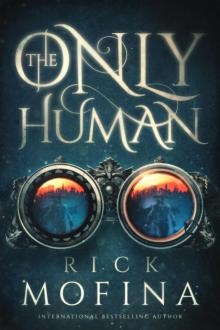 The Only Human
The Only Human Tom Reed Thriller Series
Tom Reed Thriller Series![[Tom Reed and Walt Sydowski 04.0] No Way Back Read online](http://i1.bookreadfree.com/05/tom_reed_and_walt_sydowski_04_0_no_way_back_preview.jpg) [Tom Reed and Walt Sydowski 04.0] No Way Back
[Tom Reed and Walt Sydowski 04.0] No Way Back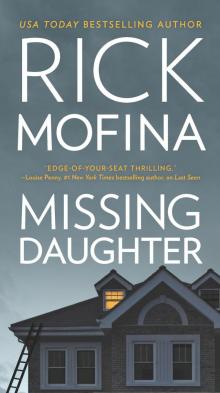 Missing Daughter
Missing Daughter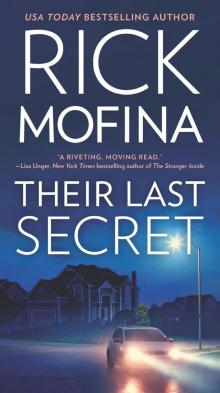 Their Last Secret
Their Last Secret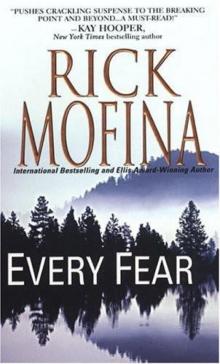 Jason Wade - 02 - Every Fear
Jason Wade - 02 - Every Fear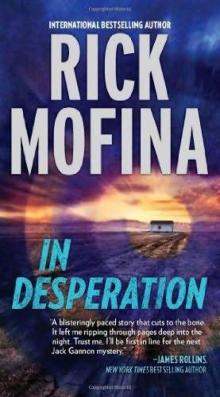 In Desperation
In Desperation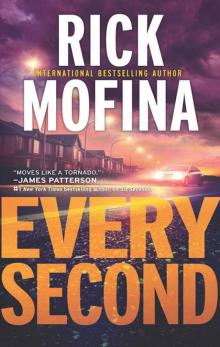 Every Second
Every Second Full Tilt
Full Tilt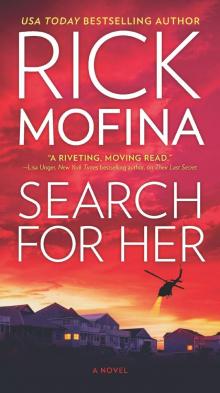 Search for Her
Search for Her The Last Pursuit
The Last Pursuit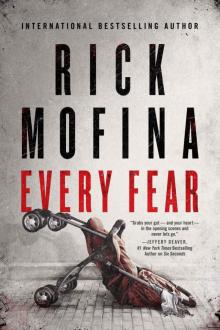 Every Fear
Every Fear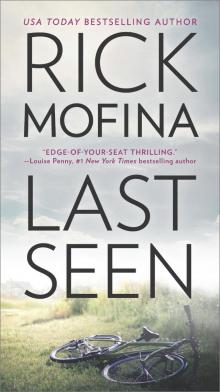 Last Seen
Last Seen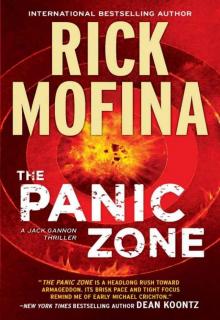 The Panic Zone
The Panic Zone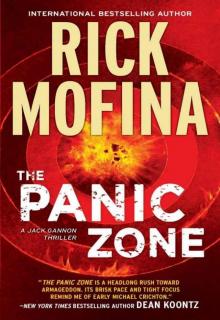 The Panic Zone jg-2
The Panic Zone jg-2 Free Fall
Free Fall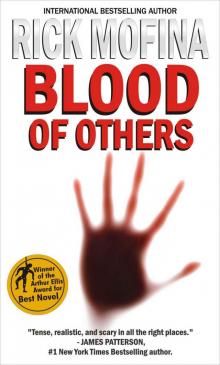 Blood of Others
Blood of Others![[Jason Wade 02.0] Every Fear Read online](http://i1.bookreadfree.com/i1/03/31/jason_wade_02_0_every_fear_preview.jpg) [Jason Wade 02.0] Every Fear
[Jason Wade 02.0] Every Fear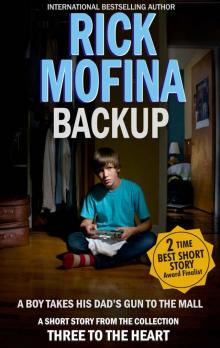 Backup
Backup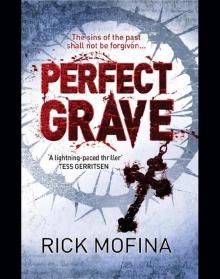 Perfect Grave
Perfect Grave Into the Dark
Into the Dark Whirlwind
Whirlwind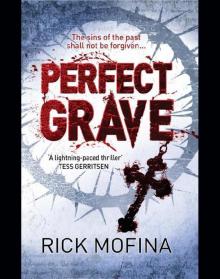 Perfect Grave jw-3
Perfect Grave jw-3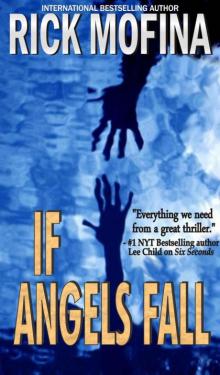 If Angels Fall (tom reed and walt sydowski)
If Angels Fall (tom reed and walt sydowski)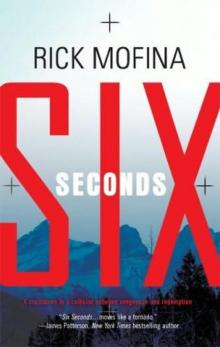 Six Seconds
Six Seconds If Angels Fall
If Angels Fall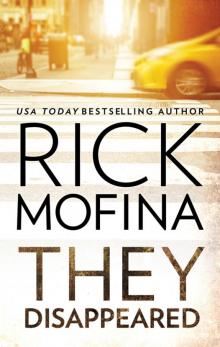 They Disappeared
They Disappeared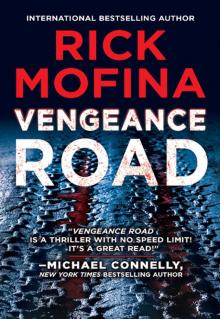 Vengeance Road
Vengeance Road Before Sunrise
Before Sunrise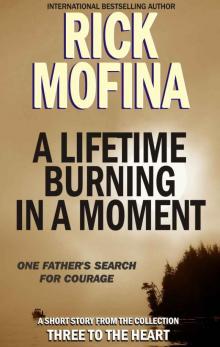 A Lifetime Burning in a Moment
A Lifetime Burning in a Moment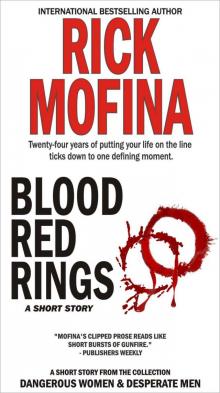 Blood Red Rings (Dangerous Women & Desperate Men)
Blood Red Rings (Dangerous Women & Desperate Men) As Long As We Both Shall Live (Dangerous Women & Desperate Men)
As Long As We Both Shall Live (Dangerous Women & Desperate Men)![[Tom Reed and Walt Sydowski 01.0] If Angels Fall Read online](http://i1.bookreadfree.com/i2/04/12/tom_reed_and_walt_sydowski_01_0_if_angels_fall_preview.jpg) [Tom Reed and Walt Sydowski 01.0] If Angels Fall
[Tom Reed and Walt Sydowski 01.0] If Angels Fall Cold Fear
Cold Fear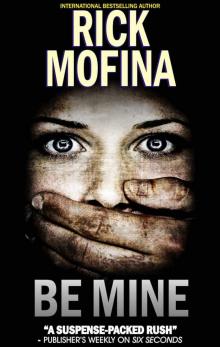 Be Mine
Be Mine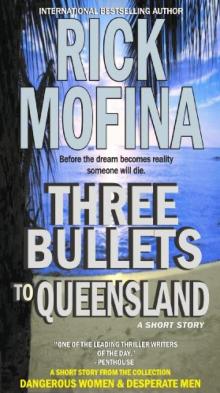 Three Bullets To Queensland
Three Bullets To Queensland